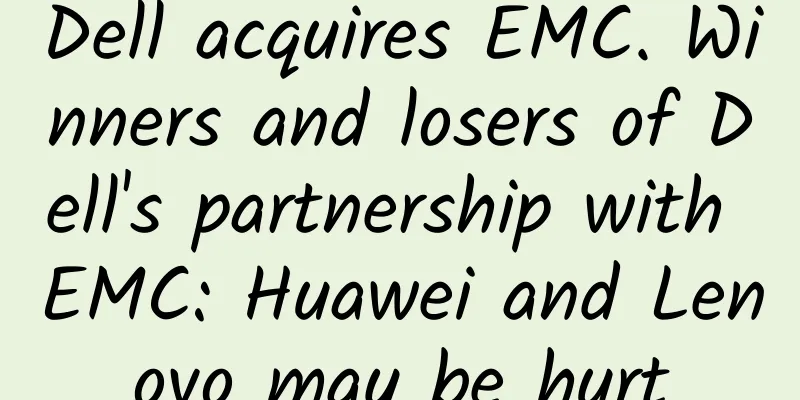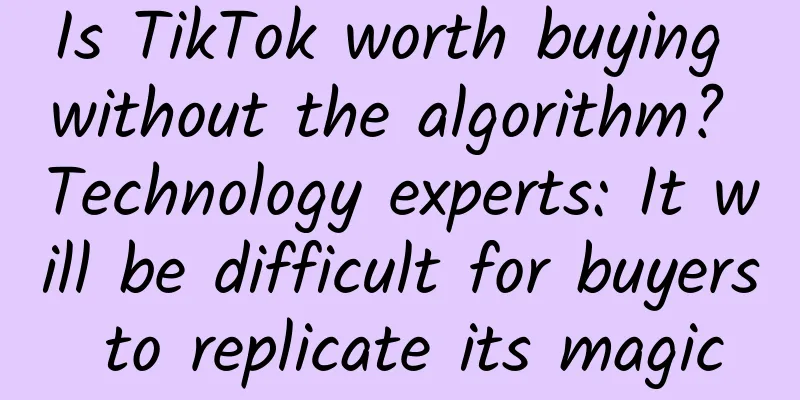Dell acquires EMC. Winners and losers of Dell's partnership with EMC: Huawei and Lenovo may be hurt

|
Dell announced on Monday that it would acquire data storage giant EMC for $67 billion, which became the largest M&A deal in the history of technology. Foreign media published a commentary, counting the winners and losers behind this largest deal in the technology industry, and analyzed that it would expand its original business advantages in China, while Huawei and Lenovo might be hurt in the enterprise market.
EMC Chairman and CEO Joe Tucci speaks at Oracle OpenWorld 2013 in San Francisco on September 24, 2013. Dell announced that it would acquire EMC for $67 billion. Although EMC's outgoing CEO Joe Tucci claimed in a statement that the company's future is still bright, the deal has made the already difficult situation of many EMC employees and customers even worse. Dell's acquisition of EMC has been called the largest merger and acquisition in the history of technology, but this deal cannot solve a series of important problems facing both companies today. They are still producing products that were popular with users 15 years ago, but now the sales of these products are barely growing. Throughout history, Dell and EMC have failed to eliminate this problem through product innovation or acquisitions. Below, we take stock of the hardware and losers of this deal: Winner Joe Tucci, Chairman and CEO of EMC EMC chairman and CEO Joe Tucci is the biggest winner of the deal. After all, the 68-year-old CEO had been planning to retire in February, but never did. Now that he can spend his retirement in peace—according to Equilar, he will receive a $27.2 million compensation package, compared to about $124,000 if he retired before the deal was announced—Tucci knows exactly what Dell will inherit from EMC, and which businesses Dell will keep, which will be sold, and which people will be laid off. "I am extremely proud of what we have created at EMC - from humble beginnings as a startup in Boston to a world-class technology company with global scale and a relentless focus on delivering exceptional service to our customers," Tucci said in a statement. Tucci believes that the deal will help all EMC stakeholders adapt to the new situation. "However, we see that the current trend of change in the industry is unprecedented, and if we want to take advantage of it, we must create a new company that adapts to this new era. I fully believe that the combination of EMC and Dell is a win-win for our customers, employees, partners and shareholders," Tucci said. Michael Dell, founder and CEO of Dell Michael Dell, the founder and CEO of Dell, will also enjoy the glory of "winner takes all", as he completed the privatization of Dell in 2013 for about $25 billion and took on $12 billion in debt in the transaction. Dell began promoting the deal on October 11. In an interview with The New York Times, he said: "This will create a world-leading company. This private structure will give us great flexibility. We will continue to lead Dell into some of the areas most relevant to the development of the IT industry. This transaction will only accelerate this process." bank Dell is currently in contact with some banks, planning to raise at least $40 billion to complete the deal. Such discussions will certainly be beneficial to these banks. According to Bloomberg, the banks Dell has contacted include JPMorgan Chase, Barclays and Credit Suisse. In addition, many investment banks will also gain good income from this transaction, such as Morgan Stanley, Evercore Partners, Needham & Co, JPMorgan Chase, Credit Suisse, Barclays, Bank of America Merrill Lynch, Citigroup, Deutsche Bank Securities and Goldman Sachs. Hedge Fund Elliott Management Since last year, EMC has been under tremendous pressure from Elliott Management, a hedge fund with $27 billion under management, which holds 2.2% of EMC and requires EMC to complete a tax-free spin-off of its 81% VMware shares. There is no doubt that Elliott Management will also make a lot of money from this deal - after all, EMC's current stock price is nearly 30% higher than when the acquisition rumors were first exposed. "Elliott is pleased to benefit from VMware's upward momentum by following the stock - we benefit from both the synergies from Dell's restructuring process and the improved liquidity of VMware's stock going forward," said Jesse Cohn, senior portfolio manager at Elliott Management. EMC's Competitors EMC is currently competing with a large number of fast-growing startups and traditional large enterprises. As Michael Dell integrates the two companies - Bloomberg reported that the acquisition may take a year to complete - customers may not get the best service, after all, EMC employees are more concerned about whether they will lose their jobs. This will create opportunities for EMC's competitors, who will chase after EMC and Dell's existing customers with better services and prices. Losers EMC Employees According to the Wall Street Journal, after Dell completes its acquisition of EMC, the merged company will be burdened with up to $40 billion in debt. Considering the current high-risk bond (junk bonds) interest rate of 7.73%, Dell's interest rate may reach 8%. Therefore, within 18 to 24 months after the acquisition is completed, the company must find a way to pay $3.2 billion in interest each year. At the same time, many EMC executives will be replaced by Dell executives. The same will happen to many of EMC's business units, including finance, human resources, procurement and IT. A good example of how tech mergers can hurt employees can be seen in Hewlett-Packard’s acquisition of Compaq for $24 billion in 2002, when current U.S. presidential candidate Carly Fiorina was CEO. According to CNN, when Fiorina first became CEO of HP in 1999, HP and Compaq had a total of 148,100 employees. After the two companies merged in 2002, 30,000 people lost their jobs, accounting for 20% of the total number of employees. If Dell and EMC have a total of about 177,800 employees and the final layoff rate is 20%, it means that 35,560 people will be laid off in the end. At the beginning of 2015, EMC had a total of 68,000 employees, and laid off 1,500 people in the first quarter. According to Forbes, Dell had a total of 111,300 employees in October last year. EMC has about 9,700 employees in Massachusetts, many of whom may be laid off. Existing customers of both companies What's good for EMC and Dell's competitors is bad for existing customers. In the short term, the quality of customer service will certainly be compromised, as the large number of EMC and Dell employees who provide direct-to-consumer services are more concerned about keeping their jobs. However, the core idea of the deal is that customers want to get all their computing needs from one company. But this idea may be just wishful thinking on the part of management. In fact, this one-stop service will only make customers pay higher prices and prevent them from enjoying the benefits of technological improvements. Massachusetts Real Estate Market In order to pay the huge interest, Dell also had to reduce its real estate expenses. According to the Boston Business Journal, about 32% of the properties listed for sale on the secondary market of Route 596 in Massachusetts belong to EMC. According to a report released by market research firm Colliers International, this includes 3.8 million square feet (about 353,000 square meters) of office space in Hopkinton headquarters, Hudson, and nearby Marlborough, Westborough, Southborough and Northborough. If they are lucky, the laid-off employees of EMC can find jobs in the local area. For former EMC employees who cannot find jobs, they may sell their properties, which will put more pressure on local housing prices. However, this deal is definitely good news for the two CEOs and bankers. Therefore, only 1% of people can benefit from it in the end. Impact on China's technology industry Merger strengthens advantages in Chinese market According to research firm IDC, the transaction will enable Dell and EMC to surpass Huawei in China's data storage market share and become the industry's number one. EMC was the leader in China's storage market last year, but was surpassed by Huawei in the first half of this year. Huawei's share of China's data storage market in the first half of this year was 16.8%, ranking first; EMC's market share was 15.2%, ranking second; and Dell ranked sixth with a share of 5.3%. The Chinese government has not yet commented on Dell's acquisition of EMC, as the deal was announced so recently. Alberto Moel, an analyst at Bernstein in Hong Kong, believes that since EMC has strong enough competitors in China, the deal is unlikely to face strong regulatory obstacles from Chinese regulators. The combination of Dell and EMC will enhance the competitiveness of the two companies in the Chinese market, but they are still far from being able to control the entire market, Moel said. In recent years, China has increasingly shown its antitrust muscle to the outside world, and some of these cases do not even involve Chinese companies. Last year, Chinese regulators blocked plans by the world's three largest container shipping companies to form a freight alliance, which had previously been approved by US and European regulators. In April 2013, commodity giant Glencore PLC finally got Beijing's approval to acquire mining company Xstrata after agreeing to sell one of its copper projects, five months after obtaining approval from European and US regulators. Enterprise market: Huawei and Lenovo will be hit While Chinese regulators will not block the combination of Dell and EMC, their alliance could have some impact on two major players in China's technology industry, Huawei and Lenovo, as both Chinese companies have ambitions to expand overseas. Lenovo has been operating a joint venture with EMC for the past two years to produce data storage products for small and medium-sized enterprises. Kitty Fok, director of IDC China, believes that Dell's acquisition means that Lenovo's partnership with EMC will soon end, and Lenovo will have to look for other partners in the future. In response, a Lenovo spokesperson said that the company has been shrinking its partnership with EMC and that this has nothing to do with Dell's acquisition. "In line with our strategy, we have been reducing the size of our joint venture with EMC and we do not believe Dell's acquisition of EMC will have an impact on Lenovo's future plans," a Lenovo spokesman said. Huawei, which intends to strengthen its enterprise business in China and overseas, will also face a stronger competitor. Analysts said that the combination of Dell and EMC will bring a richer storage product portfolio and greater economies of scale. Although Dell and EMC's biggest competitors in the world are all American companies such as NetApp, HP and IBM, Huawei is gradually becoming their important competitor in the Chinese and overseas markets. A Huawei spokesperson did not immediately respond to a request for comment. Currently, Huawei and Lenovo are both seeking to become major global players in the enterprise computing market. To this end, Lenovo spent money to acquire IBM's x86 server business last year; and Huawei, which started out as a supplier of telecommunications equipment to operators, has also been working hard to expand its enterprise customer base in recent years. |
>>: Recommended by experts: Must-read books for iOS development
Recommend
The recurrent laryngeal nerve that “takes a detour”, is this irrefutable evidence from fish to humans?
Many friends have heard that thyroid surgery can ...
Even police can't tell whether iPhone-shaped anti-explosion weapon is real or fake
Canadian police recently seized two deadly weapons...
Air ticket prices are as low as 30 yuan. What are the reasons for the drastic drop in air ticket prices?
Because of the outbreak, many companies in many i...
Will high-price strategy feed back into marketing growth?
Yesterday, after "Cong Yan Cong Yu" att...
Liang Xiaoling: "Improve your emotional intelligence and change your life by reading your mind"
In this age where appearance, father, and IQ are ...
Scientific Exploration丨China’s first major rescue: How to find an escape route for whales away from human interference?
At 5:30 in the morning of April 20, the rising su...
Apple is also messing around. Why is the iPhone 6 32GB a bad move?
Earlier this week, without any official publicity,...
Do you know? 9 major trends in web design in 2015
In fact, many friends have translated or summariz...
First concentrated appearance! How many amazing archaeological discoveries are there in the Mausoleum of Qin Shihuang?
2024 marks the 50th anniversary of the archaeolog...
What is the impact of web page opening speed on SEM marketing?
The speed at which web pages open determines whet...
Nezha of the people, created by the people! An open letter from Nezha Auto's Zhang Yong to users
On June 22, Nezha Auto held a "Creation"...
The nuclear power plant’s new sideline business – producing pearls!
Nuclear power plants are places where nuclear ene...
Internal brand marketing is ignored by countless people!
Before we start reading this article, let's d...
The stories about animal doctors that I heard since childhood turned out to be from Putian!
The most hated fraud is that in the medical field...
The South is experiencing the largest snowfall this winter. What will the weather be like during the postgraduate entrance examination? | Expert interpretation
December 23-26 Central and eastern my country aff...









